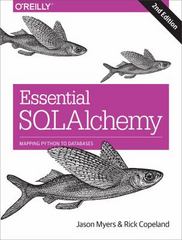Answered step by step
Verified Expert Solution
Question
1 Approved Answer
Explaining the game Turing Machine For Parts 3 - 5 , you're now going to make parts of a game called Turing Machine. Each part
Explaining the game "Turing Machine"
For Parts you're now going to make parts of a game called "Turing Machine". Each part will be a different component of a software implementation of the game or a slightly trimmed down version of the game and the task descriptions will go into detail of what you have to do for each part, but it's useful to have an idea of what the physical game looks and plays like also it's a fun board game
The Game
There is a machine which holds a secret answer a digit number where each digit is in the range and a collection of verifiers. The goal of the players is to guess the secret answer or better still, logically deduce the secret answer
This is achieved via the verifiers. Each turn, the user guesses a digit number again with each digit in the range and applies verifiers to that number. If the secret number shares the same property as the guessed number in relation to a verifier, the result of the verifier is "Yes" or True, or however you want to think about a positive response If the two numbers do not share the same property, the answer is No Note that this doesn't immediately tell you what the secret number is just that it has the same "structure" as the guessed number relative to the verifier.
In the actual game, the digits of the numbers are represented with symbols, the first digit is a blue triangle, the second digit is a yellow square and the third digit is a purple circle. For the tasks, we will replace these with x y and z respectively because there's no blue triangle symbol unicode
A verifier is a card and a lookup table, but that's not on the card that describes some property that is being tested, for example:
This verifier checks if the number is even or odd
This is Verifier It checks if the first digit is even or odd. If both the guess and answer share the same property, then the result is "Yes". So if the secret number is and the guessed number is it will give back the answer "Yes", because both the secret number and the guess have odd first digits. If guess is instead it will answer No because the guess has an even first digit, but the secret number does not.
The results then allow logical deduction of properties of the secret number. In the example just given, both results would tell you that the first digit can only be or
In the board game, there are or verifiers randomly chosen from a set of verifiers, and play proceeds in rounds where each player makes a guess and chooses three of the available verifiers to apply. When a player thinks they have deduced the secret number, they declare this, and look up the secret number, after which they can no longer guess. The player who correctly guesses the secret number in the fewest rounds wins.
The full rules of the board game are here. The full website will also let you play the game, though you need the verifier cards and the lookup tools ie the actual board game
The game "Turing Machine" is copyrighted by the publisher Le Scorpion Masqu and used here for educational purposes.
Code:
Step by Step Solution
There are 3 Steps involved in it
Step: 1

Get Instant Access to Expert-Tailored Solutions
See step-by-step solutions with expert insights and AI powered tools for academic success
Step: 2

Step: 3

Ace Your Homework with AI
Get the answers you need in no time with our AI-driven, step-by-step assistance
Get Started


